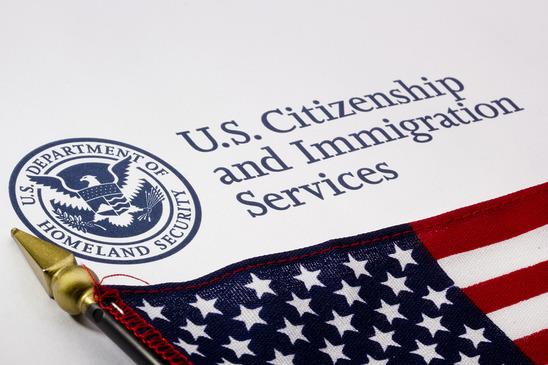
Naturalised US Citizens Believed They Were Safe... Until Now
It's what made him decide to apply: the premise - and the promise - that when he became a naturalised American citizen, it would create a bond between him and his new home. He would have rights as well as responsibilities, like voting, so that, as he was making a commitment to the country, the country was making one to him.
“When I raised my hand and took the oath of allegiance, I did believe at that moment the promise that I belonged,” said Sesay, 44, who first arrived in Louisiana more than 15 years ago and now works as an advocate for refugees and their integration into American society.
ADVERTISEMENTBut in recent months, as President Donald Trump reshapes immigration and the country's relationship with immigrants, that belief has been shaken for Sesay and other naturalised citizens. There's now fear that the push to drastically increase deportations and shift who can claim America as home, through things like trying to end birthright citizenship, is having a ripple effect.
What they thought was the bedrock protection of naturalisation now feels more like quicksand.
What happens if they leave?
Some are worried that if they leave the country, they will have difficulties when trying to return, fearful because of accounts of naturalised citizens being questioned or detained by US border agents. They wonder: Do they need to lock down their phones to protect their privacy? Others are hesitant about moving around within the country after stories like that of a US citizen accused of being here illegally and detained even after his mother produced his birth certificate.
Sesay said he doesn't travel domestically anymore without his passport, despite having a REAL ID with its federally mandated, stringent identity requirements.
Immigration enforcement roundups, often conducted by masked, unidentifiable federal agents in places including Chicago and New York City, have at times included American citizens in their dragnets. One US citizen who says he was detained by immigration agents twice has filed a federal lawsuit.
Adding to the worries, the Justice Department issued a memo this summer saying it would ramp up efforts to denaturalise immigrants who've committed crimes or are deemed to present a national security risk. At one point during the summer, Trump threatened the citizenship of Zohran Mamdani, the 34-year-old democratic socialist mayor-elect of New York City, who naturalised as a young adult.
The atmosphere makes some worried to speak about it publicly, for fear of drawing negative attention to themselves. Requests for comment through several community organisations and other connections found no takers willing to go on the record other than Sesay.
In New Mexico, State Senator Cindy Nava says she's familiar with the fear, having grown up undocumented before getting DACA - Deferred Action for Childhood Arrivals, the Obama-era program that protected people brought to the US as children from being deported - and gaining citizenship through her marriage. But she hadn't expected to see so much fear among naturalised citizens.
“I had never seen those folks be afraid... now the folks that I know that were not afraid before, now they are uncertain of what their status holds in terms of a safety net for them,” Nava said.
What citizenship has meant, and who was included, has expanded and contracted over the course of American history, said Stephen Kantrowitz, professor of history at the University of Wisconsin-Madison. He said while the word“citizen” is in the original Constitution, it is not defined.
“When the Constitution is written, nobody knows what citizenship means,” he said.“It's a term of art; it comes out of the French revolutionary tradition. It sort of suggests an equality of the members of a political community, and it has some implications for the right to be a member of that political community. But it is... so undefined.”
American immigration and its obstacles

Legal Disclaimer:
MENAFN provides the
information “as is” without warranty of any kind. We do not accept
any responsibility or liability for the accuracy, content, images,
videos, licenses, completeness, legality, or reliability of the information
contained in this article. If you have any complaints or copyright
issues related to this article, kindly contact the provider above.

















Comments
No comment